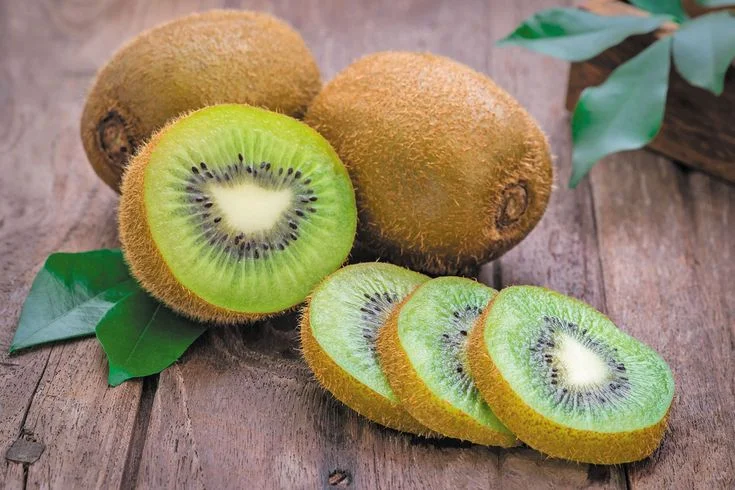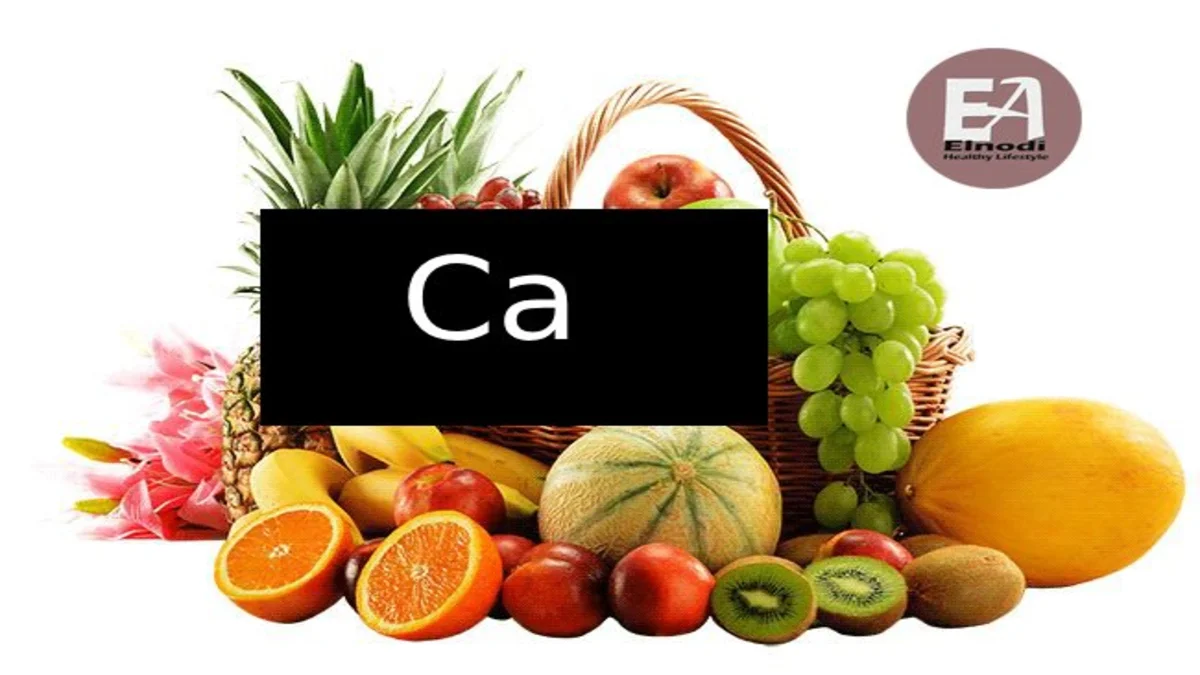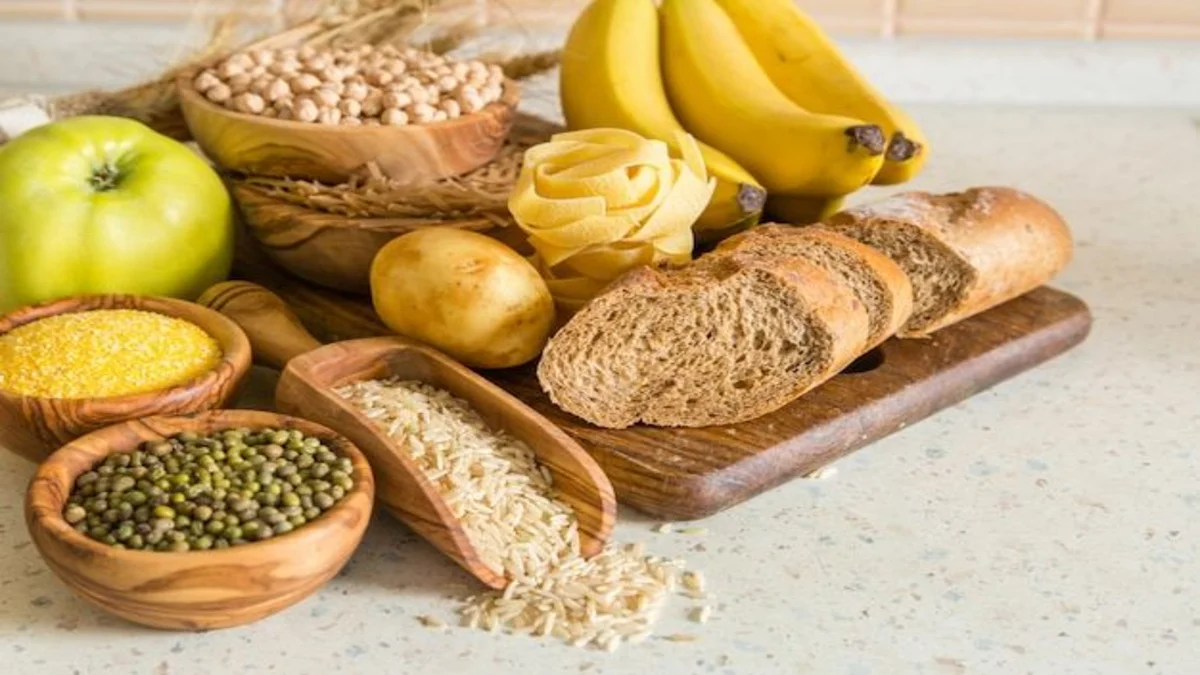Looking for delicious ways to boost your calcium intake? Check out these tasty calcium-rich fruits that are perfect for keeping your bones strong and healthy!
Calcium is a vital mineral for maintaining strong bones and overall health. Many people may not be getting enough calcium in their diet, which can lead to bone-related issues in the long run. Fortunately, there are a variety of delicious fruits that are not only packed with essential vitamins and nutrients but also provide a good source of calcium.
Role of Calcium in Maintaining Good Health
Below, we cover the significance of calcium in our bodies.
Calcium’s Importance in the Human Body
Bone and Teeth
Calcium is the most abundant mineral in our bodies, with around 99% located in our bones and teeth. This essential mineral is crucial for the formation and durability of our skeleton, aiding in bone growth and repair.
Maintaining adequate calcium levels is vital for bone density, reducing the risk of fractures resulting from osteoporosis.
Muscle Function
Calcium ions are essential for muscle contraction, initiating the movement process by binding to proteins within muscle cells.
Additionally, they play a crucial role in ensuring proper heart contractions.
Nerve Signaling
Calcium functions as an electrolyte, aiding in the transmission of nerve signals and facilitating neurons in releasing neurotransmitters.
Having proper levels of calcium is essential for maintaining optimal brain health, which can lead to improved cognitive function, enhanced mood regulation, and better memory retention.
Blood Clotting
Calcium is crucial for regulating the coagulation cascade as it is essential for activating specific clotting factors.
Insufficient calcium can result in ineffective blood clotting, causing prolonged bleeding when injuries occur.
Effects of Insufficient Calcium
Insufficient calcium may result in severe health issues such as osteoporosis, rickets, dental problems, and additional illnesses.
Osteoporosis
Osteoporosis occurs due to a loss of minerals in bones, resulting in decreased density.
This increases the likelihood of fractures, particularly in the elderly.
Adequate calcium intake can help prevent bone loss and reduce the chances of developing osteoporosis.
Rickets
Rickets occur in children due to inadequate intake of calcium or vitamin D leading to weak, soft bones.
Severe rickets can hinder growth, result in deformities, and increase the likelihood of fractures.
Dental Problems
Inadequate calcium intake may lead to tooth decay, gum disease, and diminished enamel strength.
Ensuring proper calcium levels is crucial for maintaining oral health and hygiene.
Additional Health Problems
Insufficient calcium levels may result in various health issues such as muscle cramps, spasms, numbness, and tingling in the limbs, as well as connections to conditions like premenstrual syndrome (PMS), depression, and insomnia.
Best calcium-rich fruits
Delicious and rich in vitamins, minerals, and antioxidants, fruits vary in their calcium content.
Below are the fruits highest in calcium:
1. Dried Figs
Dried figs are rich in calcium, with a single cup (237 grams) containing 300 mg, providing a sweet and chewy source of this essential mineral.
Enjoy them as a snack or incorporate them into smoothies and desserts for a delicious and nutritious treat.
2. Oranges and Juice made from Oranges

Oranges offer numerous health advantages, including providing 50 mg of calcium in every 100 grams.
3. Rhubarb
Though rhubarb has a distinct flavor, it offers a substantial amount of calcium.
Just one cup (240 ml) of rhubarb juice contains 300 mg of calcium.
You have the option to consume the juice directly or incorporate rhubarb into sweet treats like pies or crumbles.
4. Blackcurrants
Blackcurrants, packed with flavor, are petite berries.
A mere cup (112 grams) boasts an impressive 62 mg of calcium, as well as essential nutrients such as vitamins C and K.
This makes them a superb complement to your diet.
5. Kiwifruit

Kiwifruits are not just tasty – they’re packed with vitamin C and essential nutrients.
With 61 mg of calcium in a single serving (1 cup, 177 grams), kiwifruit stands out as a fantastic source of this vital mineral.
Whether you eat it plain or incorporate it into smoothies, juices, or yogurt bowls, kiwifruit is versatile and nourishing.
6. Prunes
Despite their size, prunes are packed with calcium, with a glass of prune juice containing 55 mg of this mineral.
Consuming whole prunes provides even more fiber, making them a versatile ingredient for snacks, desserts, and juices.
7. Dates

Dates, while small and sugary, contain a significant amount of calcium.
A single cup (147 grams) of deseeded dates provides 96 mg of calcium.
Incorporate them into smoothies, enjoy them as a quick bite, or utilize them as a wholesome alternative sweetener in baking.
8. Apricots
Apricots, with 15 mg of calcium per 100 grams, are among the calcium-rich fruits that seamlessly blend into your diet alongside other calcium sources, whether enjoyed fresh or dried.
9. Mulberries
Mulberries are rich in both taste and calcium, providing 55 mg of this essential mineral in just one cup (140 grams).
Incorporate them into smoothies, drizzle over yogurt or oatmeal, or enjoy them as a delicious snack.
10. Persimmons
While persimmons might not top the list of preferred fruits, they certainly provide both delicious flavor and essential nutrients.
For instance, a lone persimmon weighing 168 grams provides a noteworthy 54 mg of calcium.
The appealing mix of sweet and tangy tastes makes indulging in persimmons a delightful means of diversifying one’s calcium intake.
11. Kumquats
Kumquats may be small, but they pack a significant calcium punch.
With 71 mg of calcium per cup (196 grams), their tangy and sweet taste makes for a delightful snack and a great addition to jams, marmalades, or cocktails.
12. Papaya
A solitary serving (145 grams) of papaya bursts with tropical sweetness and offers 29 mg of calcium.
Papayas are abundant in fiber and various nutrients.
Indulge in them as a whole fruit, as juice, or incorporate them into salads and savory meals.
Foods High in Calcium for Vegans and Those Avoiding Dairy
Dairy items boast high calcium levels, yet various alternatives exist for vegans and non-dairy consumers.
- Chia Seeds
Chia seeds provide a significant nutritional enhancement by offering 179 mg of calcium in every ounce (28 grams).
In addition to this, they supply essential omega-3 fatty acids and fiber.
For a substantial nutritional boost, incorporate chia seeds into smoothies, yogurt, oatmeal, or salads. - Almonds
Almonds are not just delicious for snacking but also a potent source of non-dairy calcium, with an ounce (28 grams) offering approximately 200 mg of this essential mineral.
Additionally, almonds are packed with beneficial fats, fiber, and protein, which can significantly enhance the quality and balance of your diet. - Tofu
Calcium sulfate-infused tofu serves as an excellent dairy alternative for vegans.
A 126-gram serving can offer a calcium content ranging from 275 to 861 mg, varying based on the tofu’s brand and type.
Apart from being a complete protein source, tofu can enhance various dishes like stir-fries and smoothies. - White Beans
White beans, known for their abundance of non-dairy calcium, offer 70 mg in just half a cup (88 grams).
In addition to being a great source of fiber and protein, they are an excellent choice for plant-based diets. - Edamame
As previously stated, edamame is rich in calcium, with a single cooked cup (155 grams) providing 8% of the Daily Value (DV) for this mineral.
These youthful soybeans are also a full protein source, making them an ideal supplement for plant-based eating plans.
6. Green, leafy vegetables
Leafy greens, such as kale, collard greens, and spinach, are rich in essential nutrients like calcium, despite being low in calories.
These options provide significant calcium content per serving.
Kale
Fresh kale, containing 55 mg of calcium in every cup (equivalent to 67 grams), also provides essential vitamins A, C, and K.
This versatile green leafy vegetable complements salads beautifully and can be easily incorporated by sautéing or blending into smoothies to boost nutritional value.
Spinach
Spinach has higher oxalate levels that can slightly hinder calcium absorption, but it still offers a good amount of this mineral.
A single fresh cup (30 grams) of spinach provides around 30 mg of calcium, making it a valuable choice for boosting your plant-based calcium intake.
Collard Greens
One serving of cooked collard greens weighing 190 grams can offer 21% of the recommended daily value for calcium intake.
With their low oxalate levels, the calcium in collard greens is easily absorbed by the body, making them a superb choice for vegans seeking to meet their calcium requirements.
Enhancing Calcium Absorption
Having discussed various calcium sources, we will now explore the factors influencing its absorption efficiency.
Influences on Absorption of Calcium:
Vitamin D
Vitamin D helps the gut absorb calcium by getting sufficient sunlight, consuming vitamin D-rich foods, or taking supplements.
This practice significantly impacts calcium absorption and overall bone health.
Phosphorus
Phosphorus, crucial for healthy bones, works alongside calcium in our bodies.
It is essential to maintain a balanced consumption of both minerals to support optimal bone development and strength.
Magnesium
Magnesium facilitates the transfer of calcium through cell membranes, impacting the mineral absorption rate.
Maintaining an optimal ratio of calcium to magnesium can enhance bone and muscle health, in addition to supporting nerve function.
Enhancing Calcium Consumption Tips
Tips to help you maximize calcium intake from your diet:
Eating foods rich in calcium
Consume a variety of calcium-rich foods such as fruits, veggies, legumes, nuts, seeds, and fortified products to fulfill your daily calcium requirements.
Sufficient Vitamin D Intake
Spending 15-30 minutes daily in the sun or consuming vitamin D-rich foods or foods fortified with the vitamin can enhance calcium absorption.
Ensuring proper mineral balance
Ensure you balance your consumption of minerals such as magnesium and phosphorus in addition to calcium.
These essential nutrients collaborate to enhance both bone health and overall well-being.
How Much Calcium Do You Need?
The recommended daily intake of calcium can vary depending on factors such as age, gender, and overall health status. Here are the general guidelines:
- Adults: The recommended daily intake of calcium for most adults is around 1000 milligrams (mg) per day. For women over 50 and men over 70, the recommended intake increases to 1200 mg per day.
- Children and teenagers: The recommended daily intake of calcium varies by age. For children between the ages of 1 and 3, the recommended intake is 700 mg per day. For children between the ages of 4 and 8, it’s 1000 mg per day. For teenagers between the ages of 9 and 18, it’s 1300 mg per day.
- Pregnant and breastfeeding women: Pregnant and breastfeeding women may require more calcium to support the growth and development of the fetus or infant. The recommended intake during pregnancy and lactation is typically the same as for non-pregnant adults unless advised otherwise by a healthcare provider.
It’s important to note that these are general recommendations, and individual needs may vary based on factors such as activity level, dietary habits, and overall health. It’s always a good idea to consult with a healthcare provider or a registered dietitian to determine the specific amount of calcium that’s right for you.
What is the best dairy for calcium?
Dairy products are well-known for being rich sources of calcium, which is essential for maintaining strong bones and teeth. Among dairy options, milk is often considered one of the best sources of calcium. However, other dairy products like yogurt and cheese also provide significant amounts of calcium. Here’s a breakdown:
- Milk: Cow’s milk is the most common source of calcium in many diets. One cup (240 ml) of cow’s milk typically provides around 300 mg of calcium. Additionally, fortified plant-based kinds of milk like almond milk, soy milk, and oat milk are also available and often enriched with calcium.
- Yogurt: Yogurt is another excellent source of calcium. Greek yogurt, in particular, tends to be higher in calcium compared to regular yogurt because of the way it’s strained. One cup (245 grams) of plain Greek yogurt can contain around 200-300 mg of calcium, depending on the brand.
- Cheese: Cheese is a concentrated source of calcium because it’s made from milk. Hard cheeses like cheddar, Parmesan, and Swiss tend to have higher calcium content than softer cheeses. For example, one ounce (28 grams) of cheddar cheese provides about 200 mg of calcium.
Calcium: Nutrient-dense Food and Beverage Sources, Amounts of Calcium and Energy per Standard Portion
1. Calcium Content in Fruits
In the table below we have listed the amount of calcium that common fruits contain.
| Fruit | Calcium Content |
| Orange | 40–50 mg/100 grams |
| Kiwi | 60 mg/1 cup (177 grams) |
| Blackcurrants | 62 mg/1 cup (112 grams) |
| Mulberries | 55 mg/1 cup (140 grams) |
| Persimmon | 54 mg/1 fruit (168 grams) |
| Kumquat | 71 mg/1 cup (196 grams) |
| Papaya | 29 mg/1 cup (145 grams) |
2. Calcium Content in Vegetables
In the table below we have listed the amount of calcium present in some vegetables.
| Vegetable | Calcium Content |
| Cooked Collard Greens | 268 mg/1 cooked cup (190 grams) |
| Cooked Rhubarb | 300 mg/1 cup (240 ml) of juice |
| Cooked Spinach | 244 mg/1 cooked cup (180 grams) |
| Cooked Kale | 94 mg/1 cooked cup (130 grams) |
3. Calcium Content in Legumes, Nuts, and Seeds
Legumes and nuts can also boost your diet with their calcium content. Below we have listed the calcium content of different seeds and nuts.
| Legume or Nut | Calcium Content |
| Chia Seeds | 179 mg/1 ounce (28 grams) |
| Almonds | 200 mg/1 ounce (28 grams) |
| White Beans | 70 mg/0.5 cup (88 grams) |
| Edamame | 98 mg/1 cooked cup (155 grams) |
4. Calcium Content in Fish
Fish can offer a lot of calcium, largely from the bones that you can eat. Below are popular types and their calcium content.
| Fish | Calcium Content |
| Canned Sardines | 351 mg/3 oz (92 grams) |
| Canned Salmon | 365 mg/7 oz (198 grams) with bones |
5. Calcium Content in Grains
Lastly, the calcium content of grains is given below.
| Grain or Seed | Calcium Content |
| Cooked Amaranth | 116 mg/1 cup (246 grams) |
| Cooked Brown Rice | 20 mg/1 cup (195 grams) |
Conclusion
Calcium is essential for maintaining healthy bones, muscles, and nerves, as well as blood clot formation. Calcium-rich fruits, vegetables, legumes, nuts, and fish can help you receive enough of this essential mineral in your diet. Remember to keep your vitamin D, phosphorus, and magnesium levels balanced. Your age and everyday demands are also important.
You can maintain your bones strong by eating a variety of calcium and mineral-rich foods. This will contribute to your general well-being. Watch out for symptoms that you’re not receiving enough calcium. Also, consult your healthcare practitioner for guidance on developing the optimal diet and lifestyle for your specific needs.
FAQs
Are bananas high in calcium?
How can I raise my calcium level quickly?
What is the fastest way to cure calcium deficiency?
How to get 1,000 mg of calcium a day?
References:
- https://www.ncbi.nlm.nih.gov/pmc/articles/PMC4712861
- https://www.ncbi.nlm.nih.gov/pubmed/22744944
- https://www.ncbi.nlm.nih.gov/pubmed/24164846
- https://www.ncbi.nlm.nih.gov/pmc/articles/PMC4779480
- https://www.ncbi.nlm.nih.gov/pmc/articles/PMC6683260
- https://www.ncbi.nlm.nih.gov/pmc/articles/PMC5726210
- https://www.dietaryguidelines.gov/food-sources-calcium
Disclaimer: The information provided here is for educational/awareness purposes only and is not intended to be a substitute for medical treatment by a healthcare professional and should not be relied upon to diagnose or treat any medical condition. The reader should consult a registered medical practitioner to determine the appropriateness of the information before consuming any medication. Elnodi does not provide any guarantee or warranty (express or implied) regarding the accuracy, adequacy, completeness, legality, reliability, or usefulness of the information; and disclaims any liability arising thereof.





